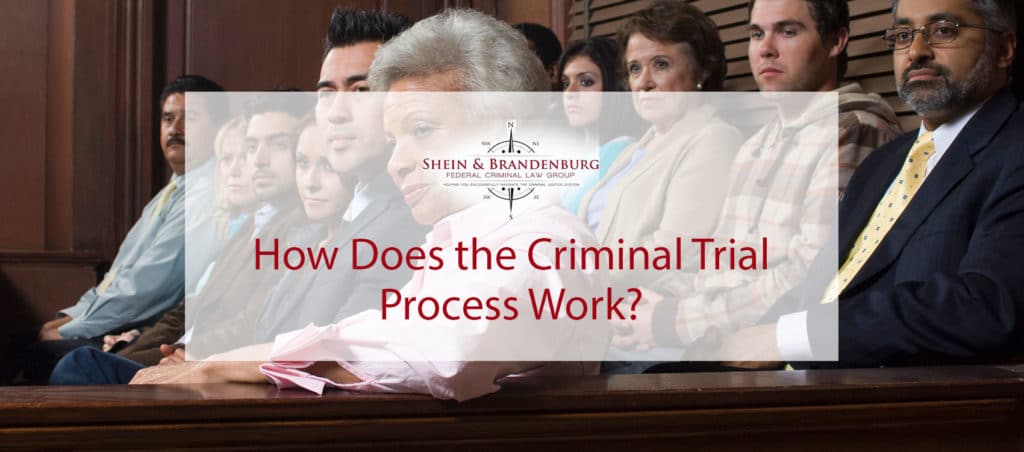Understanding the Criminal Trial Process
No matter if you are facing charges for a misdemeanor or felony, one of the first questions that you might ask is, “What can I expect from the criminal trial process?” Many people find the criminal trial process confusing and even scary. It is helpful to have a good understanding of the criminal trial process if you are charged with a crime so that you can to prepare for what is ahead of you. The following will review the common elements of a criminal trial. If you are facing criminal charges, it is a wise idea to obtain the assistance of an experienced criminal defense attorney.
Arrest
An arrest occurs when a law enforcement officer either witnesses a person commit an offense or has an arrest warrant supported by probable cause. After an arrest, a person will be taken into custody by law enforcement. An individual will then appear before a judge, which often occurs within 24 hours after the arrest.
Initial Appearance
An initial appearance occurs when a person appears in front of a judge for the first time. During this encounter, a judge will read the charges against a person and explain some of that individual’s basic rights. The judge will decide whether the individual should remain in jail or should be released on bond. During the initial appearance, the judge will also schedule a preliminary hearing.
Preliminary Hearing
During a preliminary hearing, a judge will determine whether there is probable cause that an individual committed the charged offense. A criminal defense attorney will also cross-examine any witnesses presented by the prosecution. Sometimes, the prosecution might present a grand jury to show that there is a sufficient level of probable cause.
Arraignment
The arraignment process involves an individual’s decision to plead either guilty, not guilty, no contest, or another special type of response like an Alford plea. During the arraignment process, the judge will review the bail amount and set the next court date.
Trial
If a person decides to plead not guilty, the case will proceed to trial. The trial will occur in front of a judge and/or jury. At trial, you have the constitutional right to decide if you want to testify. The prosecution will also present witnesses as well as introduce evidence that shows you committed the offense in question. Your criminal defense attorney will respond by challenging the testimony and evidence presented by the prosecution. At the conclusion of a trial, a judge or jury will reevaluate the evidence and decide whether the prosecution established that you satisfied each element of the charged offense.
Sentencing
Within 30 days of pleading guilty or being found guilty, a judge in a court of law will conduct a sentencing hearing. The judge during this time will determine the punishment that the convicted individual will face.
Speak with an Experienced Criminal Defense Lawyer
If you are facing felony charges, it is best to contact a skilled criminal defense lawyer. At the Federal Criminal Law Center, we have helped numerous people successfully navigate the criminal trial process. Contact us today to schedule your initial free consultation.


